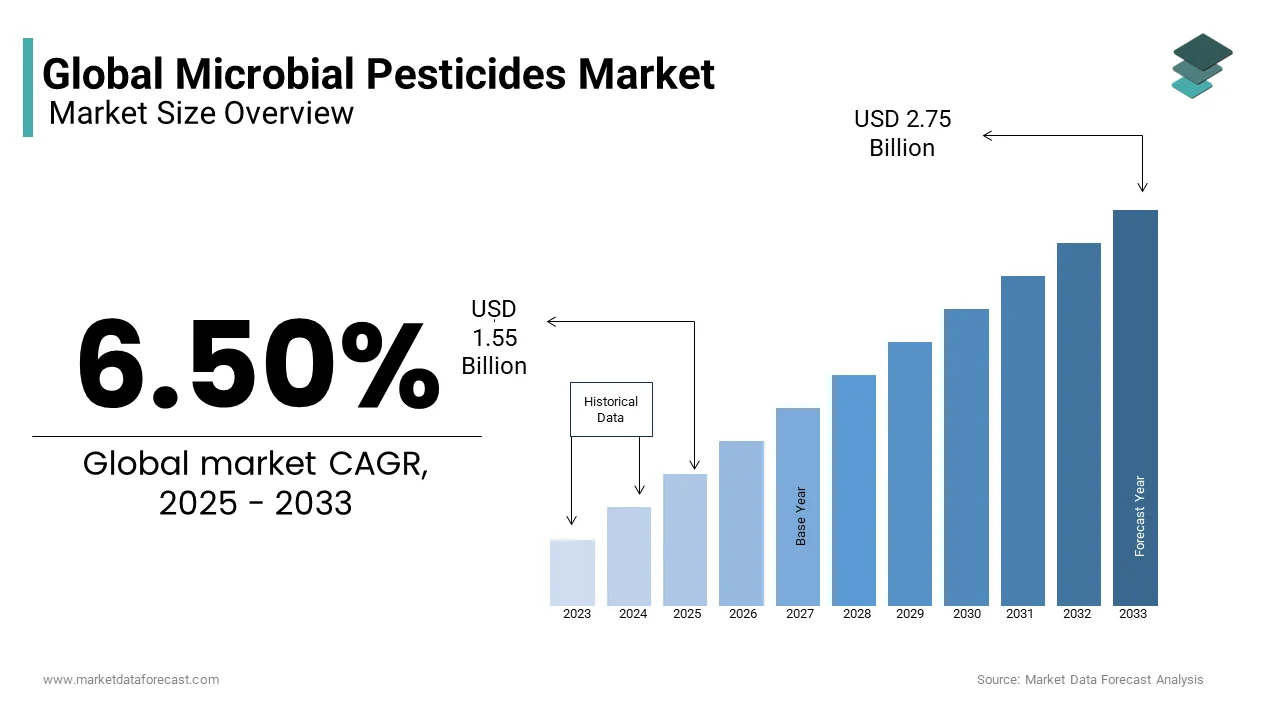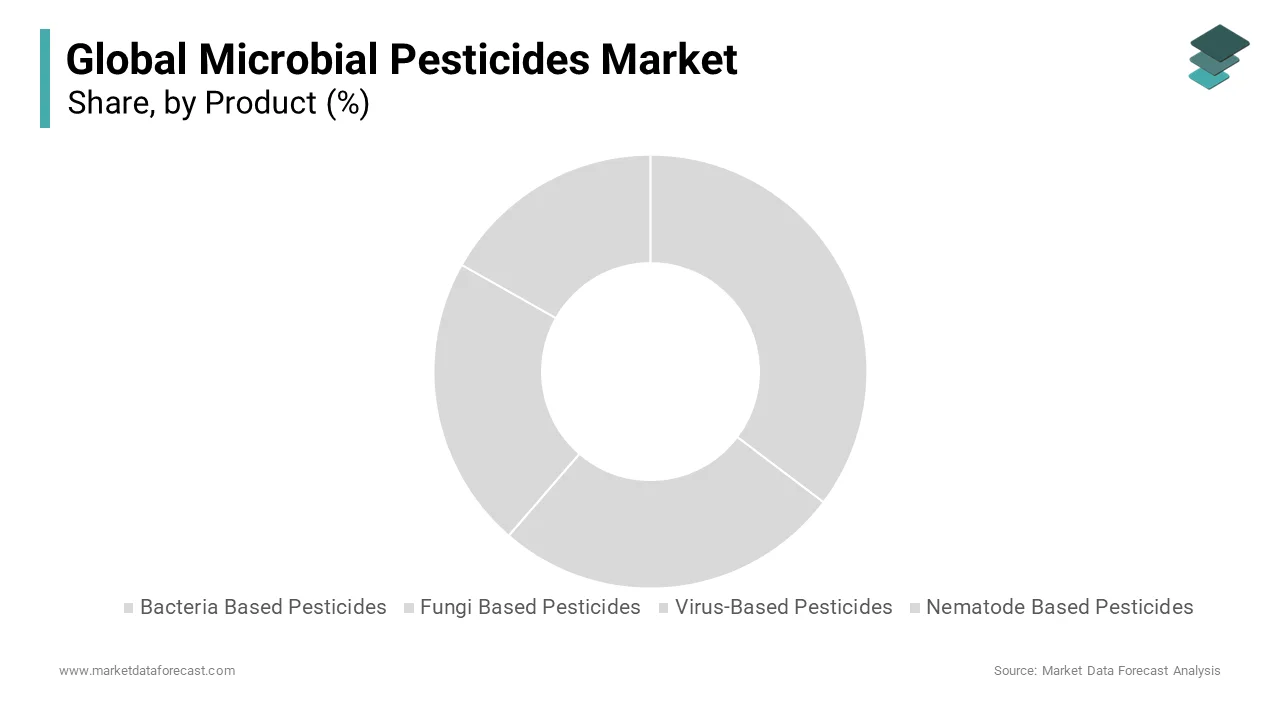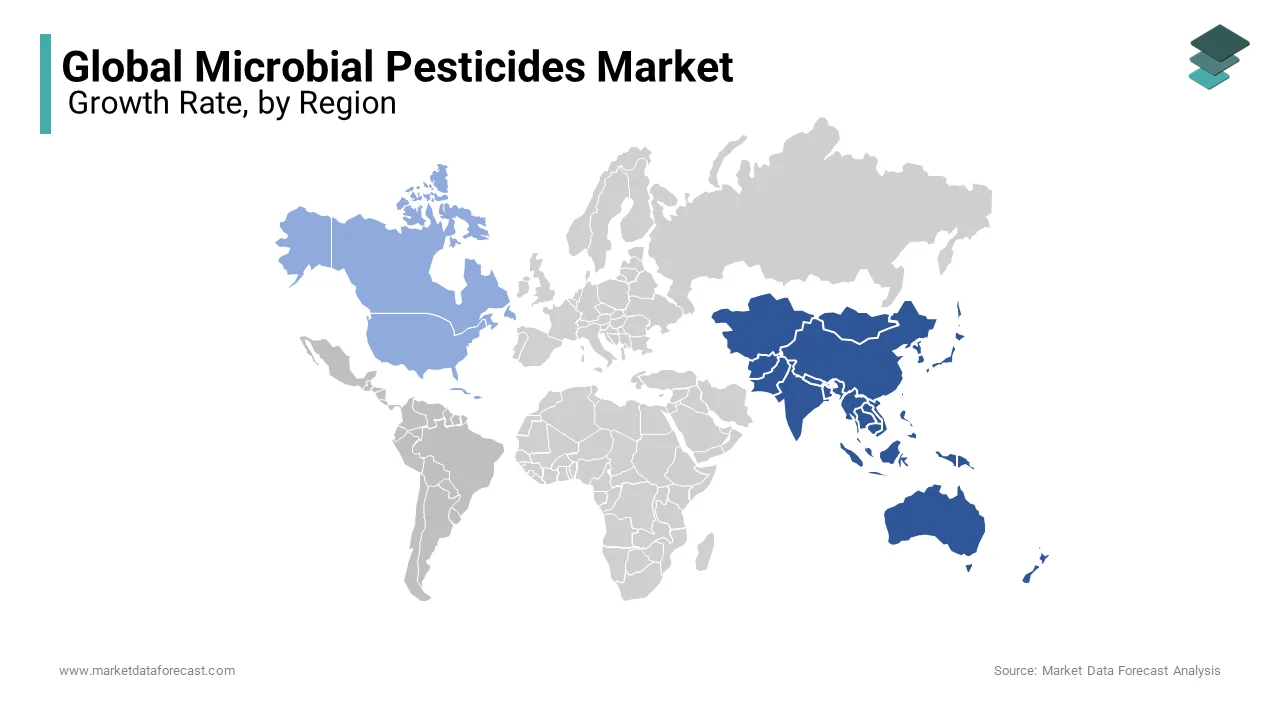Global Microbial Pesticides Market Size, Share, Trends, And Growth Forecasts Report – Segmented By Product (Bacteria Based Pesticides, Fungi Based Pesticides, and Virus-Based Pesticides, Nematode Based Pesticides), Form (Fruits and Vegetables, Maize, Rice, Cotton and Others), And Region (North America, Latin America, Asia Pacific, Europe, Middle East and Africa) - Industry Analysis From 2025 to 2033
Global Microbial Pesticides Market Size
The global microbial pesticides market was valued at USD 1.46 billion in 2024 and is anticipated to reach USD 1.55 billion in 2025 from USD 2.57 billion by 2033, growing at a CAGR of 6.50% during the forecast period from 2025 to 2033.

CURRENT SCENARIO OF THE GLOBAL MICROBIAL PESTICIDES MARKET
Microbial pesticides are certain types of pesticides derived from such natural materials as animals, plants, bacteria, and certain minerals. For example, baking soda and canola oil have pesticide-like applications and are considered biopesticides. Biopesticides are usually inherently less toxic than conventional pesticides and generally affect only the target pest and closely related organisms, in contrast to broad-spectrum, conventional pesticides that may have a harmful effect on organisms as different as birds, insects, and mammals. They are often effective in very small quantities and often decompose quickly, resulting in lower exposures and largely avoiding the pollution problems caused by conventional pesticides. When used as a component of Integrated Pest Management (IPM) programs, they can significantly reduce the use of conventional pesticides while crop yields remain high.
MARKET DRIVERS AND RESTRAINTS
While the prevalence of chemical or synthetic pesticides in crop protection would continue, human, animal, and environmental health concerns would play key roles in driving growth for biopesticides. Several countries are adopting a stringent approach concerning the number of imports, with a special focus on regulating the number of pesticide residues. As a result, the use and demand of non-chemical treatments for crop protection are increasing. Other factors favoring the market growth include low toxicity of microbial pesticides on non-target pest species, compatibility with synthetic chemicals and no residual toxicity for humans and other animals. In spite of their low toxicity and environmental impact levels, microbial pesticides have a major restraint in the form of high costs and low availability. Furthermore, Multiple acquisitions, licensing agreements, partnerships and huge investments in research and development by large companies will drive the growth of the crop protection market in the coming years.
REPORT COVERAGE
|
REPORT METRIC |
DETAILS |
|
Market Size Available |
2024 to 2033 |
|
Base Year |
2024 |
|
Forecast Period |
2025 to 2033 |
|
CAGR |
6.50% |
|
Segments Covered |
By Type, Form, and Region. |
|
Various Analyses Covered |
Global, Regional & Country Level Analysis, Segment-Level Analysis, DROC, PESTLE Analysis, Porter’s Five Forces Analysis, Competitive Landscape, Analyst Overview of Investment Opportunities |
|
Regions Covered |
North America, Europe, APAC, Latin America, Middle East & Africa |
|
Market Leaders Profiled |
Becker Underwood, Valent BioSciences, Certis, BioWorks, Ecogen, Koppert Biological System, Agri Life, AgraQuest, Marrone Bio Innovations, Novozyme Biological, Bayer crop science, BASF, IsAgro Spa, and De Sangosse. |
SEGMENTAL ANALYSIS
Global Microbial Pesticides Market By Type

Bacteria-based microbial pesticides dominate the market. Among bacteria-based pesticides B. thuringiensis var. israelensis is the most commonly used bacteria. Fungi based microbial pesticides form the largest market segment after bacteria. Trichoderma sp. is the most commonly used fungi for the preparation of microbial pesticides. Most of the products available in the market are insect control products.
Global Microbial Pesticides Market By Form
Fruits and vegetables account for the highest market share of the market.
REGIONAL ANALYSIS
On the basis of geography, the microbial pesticide market is segmented into various regions, namely North America, Europe, Asia Pacific, Latin America, and the Middle East and Africa. The Asia Pacific is the largest microbial pesticide market. China, Japan, and India are the major markets driving industry growth.

North America held the second-largest share of the market with the USA holding the largest market share by revenue. Latin America held is expected to witness lucrative growth with Brazil being the largest market in the region.
KEY MARKET PLAYERS
The market is dominated by companies like Becker Underwood, Valent BioSciences, Certis, BioWorks, Ecogen, Koppert Biological System, Agri Life, AgraQuest, Marrone Bio Innovations, Novozyme Biological, Bayer crop science, BASF, IsAgro Spa, and De Sangosse.
MARKET SEGMENTATION
This research report on the global microbial pesticides market is segmented and sub-segmented based on Type, Form, and Region.
By Type:
- Bacteria Based Pesticides
- Fungi Based Pesticides
- Virus-Based Pesticides
- Nematode Based Pesticides
By Form:
- Fruits and Vegetables
- Maize
- Rice
- Cotton
- Others
By Region
- North America
- Europe
- Asia Pacific
- Latin America
- Middle East and Africa
Frequently Asked Questions
What is the current market size of the global microbial pesticides market?
The current market size of the global microbial pesticides market was valued at USD 2.57 billion in 2025
What market drivers are driving the global microbial pesticides market?
While the prevalence of chemical or synthetic pesticides in crop protection would continue, human, animal, and environmental health concerns would play key roles in driving growth for biopesticides
Who are the market players that are dominating in the global microbial pesticides market?
The market is dominated by companies like Becker Underwood, Valent BioSciences, Certis, BioWorks, Ecogen, Koppert Biological System, Agri Life, AgraQuest, Marrone Bio Innovations, Novozyme Biological, Bayer crop science, BASF, IsAgro Spa, and De Sangosse.
Related Reports
Access the study in MULTIPLE FORMATS
Purchase options starting from $ 2500
Didn’t find what you’re looking for?
TALK TO OUR ANALYST TEAM
Need something within your budget?
NO WORRIES! WE GOT YOU COVERED!
Call us on: +1 888 702 9696 (U.S Toll Free)
Write to us: [email protected]